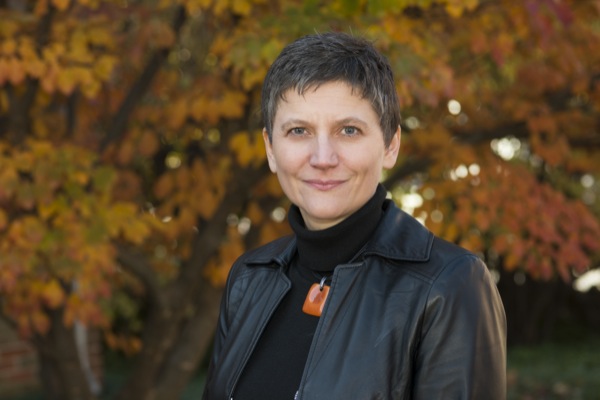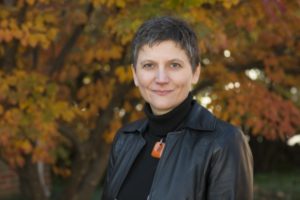In this video from ATPESC 2019, Michela Taufer from UT Knoxville presents: Scientific Applications and Heterogeneous Architectures.
This talk discusses two emerging trends in computing (i.e., the convergence of data generation and analytics, and the emergence of edge computing) and how these trends can impact heterogeneous applications. Next-generation supercomputers, with their extremely heterogeneous resources and dramatically higher performance than current systems, will generate more data than we need or, even, can handle. At the same time, more and more data is generated at the “edge,” requiring computing and storage to move closer and closer to data sources. The coordination of data generation and analysis across the spectrum of heterogonous systems including supercomputers, cloud computing, and edge computing adds additional layers of heterogeneity to applications’ workflows. More importantly, the coordination can neither rely on manual, centralized approaches as it is predominately done today in HPC nor exclusively be delegated to be just a problem for commercial Clouds. This talk presents case studies of heterogenous applications in precision medicine and precision farming that expand scientist workflows beyond the supercomputing center and shed our reliance on large-scale simulations exclusively, for the sake of scientific discovery.
Michela Taufer is an ACM Distinguished Scientist. She was a J.P. Morgan Chase Scholar at the University of Delaware where she led the Global Computing Lab to promote the use of high performance computing to advance sciences. Michela Taufer joined the University of Delaware in 2007 where she was promoted to associate professor with tenure in 2012 and full professor in 2017. She earned her MS in Computer Engineering from the University of Padova and her Ph.D. in Computer Science from the Swiss Federal Institute of Technology (ETH). She was a post-doctoral research supported by the La Jolla Interfaces in Science Training Program (also called LJIS) at UC San Diego and The Scripps Research Institute. Before she joined the University of Delaware, Michela was faculty in Computer Science at the University of Texas at El Paso.
Michela has a long history of interdisciplinary work with high-profile computational biophysics groups in several research and academic institutions. Her research interests include software applications and their advance programmability in heterogeneous computing (i.e., multi-core platforms and GPUs); cloud computing and volunteer computing; and performance analysis, modeling and optimization of multi-scale applications. She has been serving as the principal investigator of several NSF collaborative projects. She also has significant experience in mentoring a diverse population of students on interdisciplinary research. Michela’s training expertise includes efforts to spread high-performance computing participation in undergraduate education and research as well as efforts to increase the interest and participation of diverse populations in interdisciplinary studies.
Michela has served on numerous IEEE program committees (SC and IPDPS among others) and has reviewed for most of the leading journals in parallel computing. She served as the IEEE Cluster 2015 General co-Chair and the IEEE IPDPS 2017 General Chair. She is the ACM/IEEE SC19 General Chair.
Check out our insideHPC Events Calendar





